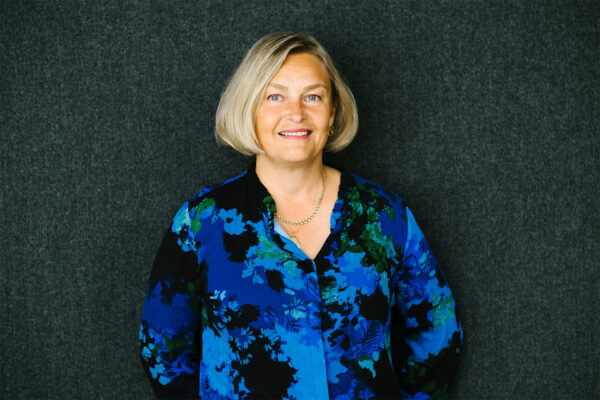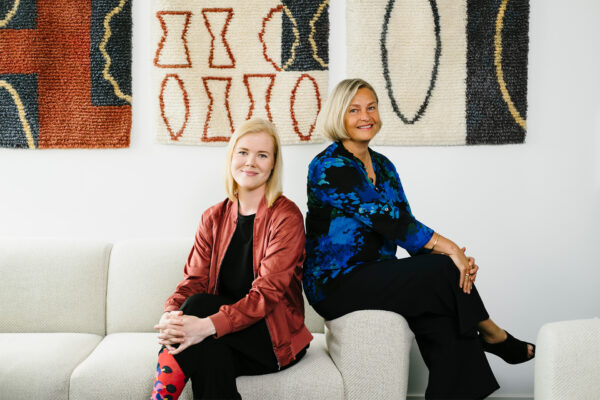Finland’s VC&PE market is far from diverse. One-half of Tesi’s 41 portfolio funds, for example, have all-male investment teams. Director Heli Kerminen is nevertheless hopeful: “I’m convinced that companies will bring the requirement for diversity to the industry. Some tech companies already prefer an investor that shows evidence of diversity,” she says.
The familiar old concept of equality gained new wings during the 2010s when the challenges of diversity and inclusion – and how critically important these themes are to the future of technology – became a hot topic on the US tech scene. Katja Toropainen, founder of the Inklusiiv organisation, a nonprofit with a mission to advance diversity and inclusion in working life, had a grandstand view of this trend as Chief Curator of Slush, Finland’s leading startup and tech event.
“When I met entrepreneurs and investors in various places from London to Silicon Valley, I noticed all the time more discussions focusing on this topic. After I’d found out more research and studies, I realised how important these topics are and how much knowledge and best practices there were already available. Research and studies consistently highlight major structural challenges that require to be solved in the tech and investment sectors,” she says.
A workplace that truly embraces diversity includes all kinds of people. Aspects of diversity include, for example, age, education, gender, religion, sexual orientation, and ethnic background. In a diverse work environment, everyone is treated fairly and with respect, and each person has equal opportunities and resources. This produces psychological safety that fosters creativity and wellbeing, helping both individuals and teams to perform at their best.
“Software engineer Tracy Chou had a central role in opening up the discussion in the technology industry. She published a blog post wondering why such a data-driven industry was talking about diversity challenges without any actual data available. She published the statistics for her employer at that time – Pinterest. Many small startups followed her example. Then larger startups, such as Etsy and Dropbox, followed suit. Finally, big corporations, such as Google, Facebook and Microsoft, started publishing diversity reports,” adds Toropainen

Data shines light on distorted structures
Diversity.vc and Atomico are trailblazers for diversity in European venture capital industry. They have published a comprehensive guide entitled Inclusion and Diversity in Tech. Atomico’s The State of European Tech was published in 2019 at the Slush startup event in Helsinki. In Finland, Tesi was a pioneer by including its Diversity and Inclusion Review of the Finnish VC / PE industry as a component in its corporate responsibility goals.
“We examined Tesi’s own organisation, our portfolio funds’ investment teams, and portfolio companies’ boards of directors. We noticed, for instance, that 50% of our portfolio funds did not have any women at all in their investment teams. Almost one-quarter (24%) of team members in our international portfolio funds were women, compared to only 16% in Finnish funds. Some eight per cent of portfolio companies’ board members were women. We also reviewed the distribution of employees by age and nationality. The work has just begun and more data about the situation in both Finland and Europe is still needed,” reports Director Heli Kerminen.
It is a known fact that investors approach male and female entrepreneurs with a different set of questions and expectations. They generally finance entrepreneurs of the same gender and with similar educational and cultural backgrounds or, for example, the same interests or hobbies. Some 92% of venture capital and private equity investments in Europe, and 94% in Finland, were allocated to male-only founder teams in 2018. Kerminen sees this as a serious structural problem that threatens Finland’s competitiveness and economic renewal.
“Investors play a crucial role in selecting which companies receive more resources for growth and which technologies are developed. We cannot afford to ignore the contribution that innovative female founders can make. It’s terrible waste on a national scale,” she emphasises.
Diverse teams develop more competitive products
Kerminen points out that diversity is especially important when the aim is to building companies that grow fast and reach an extensive and international customer base for their products or services. Identifying the needs of different customer groups and responding to those needs can be difficult if the development team is cut from the same cloth.
“This has already resulted in incidents such as artificial intelligence that doesn’t recognise women or people of color as well as it does men or white people. Twitter’s founder Evan Williams claimed that if their team had included more women early on, they could possibly have been able to prevent hate speech and harassment more effectively when they developed the platform. Hate speech and harassment is widespread on online platforms, and women and minorities suffer much more from it than others,” stresses Toropainen.
“Women use technology, and are targeted by it, just as much as men, so it’s important they also involved in the development of technology,” adds Kerminen.
This is where inclusion comes in. Should the technology sector embrace more diversity, and in doing so become more competitive, jobs must be formulated in a way that allows everyone to concentrate on their work without fear of discrimination. For example, the sector does not necessarily attract the best female talent, other marginalized groups or foreign staff at present because of structural challenges and stereotypes. The only woman in an otherwise all-male team may not feel she is listened to and accepted.
Diversity and inclusion go hand in hand
Most research on the importance of diversity in the venture capital industry has been conducted in the USA. Toropainen points to studies demonstrating that investment teams that are more diverse in terms of gender, ethnic background and education perform better than more homogeneous teams. In this industry, also, diversity alone is not sufficient.
“We also need to actively work towards making the work culture various processes from recruiting to product management more inclusive. Unless we do, some team members may feel left out and won’t contribute their best input. Diversity and inclusion go hand-in-hand, and psychological safety is an important component of inclusion,” she says.
Kerminen points out that psychological safety directly correlates with teams’ productivity and creativity. In a safe atmosphere, each person dares to put their ideas forward for others to help improve, and discussion is constructive.
“Psychological safety enhances productivity also because it improves wellbeing at work and prevents work exhaustion. That reduces sick leave and the costs it incurs,” she adds.

Women need more role models in tech and venture capital
Finland is a leader among OECD countries in the distribution of the labour market into male- and female-dominated sectors. The high proportion of men in the tech sector reflects this. If there are no women in prominent position in tech companies, young women may get the impression that women are neither wanted nor supported. Both Toropainen and Kerminen believe role models are of paramount importance.
“It would be important to see more women role models as tech entrepreneurs, investors and overall in leadership positions in tech companies. Personally, it was a big thing to get to meet women entrepreneurs on my travels in Stockholm, London and Silicon Valley while working at Slush. It was an eye-opener for me to realise entrepreneurship and venture capital could be for me too. I remember clearly when Sophia Bendz was appointed partner in Atomico. She was one of the first Nordic women to reach that level. The more we see diverse people in directorships in the venture capital industry, the more people will become interested in it and can see themselves there,” Toropainen says.
Kerminen also remembers the day Bendz was appointed.
“I sincerely hope we’ll have more female colleagues in the coming years. Companies’ boards also need more female directors. I’m convinced that boards with diversity of membership produce better results,” she says.
Toropainen adds more diverse role models are needed to promote diversity. It would be great to see, for instance, more people with international backgrounds, and people from different ethnic backgrounds rise to prominent positions, as well as women.
“There’s structural sexism and racism in the technology industry impeding the work and career prospects of women and people of colour. We also need to make the industry safer, for example, for sexual and gender minorities, people of different ages, and people with different levels of education,” she says.
Change may be slow, but it has started
Kerminen believes change will come. She suspects it will come via tech companies, because they adopt new ideas more readily than the rather more conservative investment sector. In the USA, some entrepreneurs already refuse to do business with investors that do not address diversity. Toropainen is also optimistic:
“Otherwise I couldn’t carry on doing my job. I think Finland is well-placed to become a forerunner in diversity and inclusion if we increase our efforts in it now because Finnish society already embraces equality and inclusion well in many other ways. I’m convinced that the change is happening and will only accelerate all the time,” she says.
Tesi plans to continue collecting diversity data and promoting diversity through board work in its portfolio companies. One way forward is to ensure that there are both male and female candidates for board positions. Diversity will also be incorporated into the new investment model that Tesi is currently preparing.
“Diversity is one dimension of being responsible and making an impact. Our review shows that there’s still a lot of work to be done. Change won’t come quickly, but we want to play our part in making the industry more diverse and more inclusive,” Kerminen concludes.
Photos: Junnu Lusa
More information about diversity and inclusion:
Inklusiiv organisation’s data bank: inklusiiv.org/data-bank
Atomico’s The State of European Tech 2019 report 2019.stateofeuropeantech.com
Diversity.vc’s and Atomico’s Guide to Diversity & Inclusion in Tech: inclusionintech.com
Tesi’s Diversity and Inclusion Review of Finland’s investment industry: Teollisuussijoitus.fi/Monimuotoisuuskartoitus_2019_EN.pdf
Inklusiiv’s tips for building a diverse and inclusive workplace: Start with these tips
Sophia Bendz’s interview: dtg.tesi.fi/influencers/atomico
Inklusiiv
What it is: A nonprofit organisation that advances diversity and inclusion in working life through communication, training, campaigns, research and the sharing of best practices.
Where it is: Helsinki.
When: Established in 2019.
Member organisations: Tesi, Deloitte, Google, Microsoft, CGI, ABB, Visma, Solita, Ensto, Vaisala, Supercell, Rovio and Maki.vc, among others.
Results: Altogether 15 companies published their first diversity & inclusion report in 2019.
Katja Toropainen
Who she is: Founder of Inklusiiv organisation.
Education: Master of Science at Aalto University (2020) in Information and Service Management
Experience: Chief Curator in the leadership team of Finland’s Slush startup and tech event 2017–2018.
Special: Played Finnish baseball in the women’s league of the Finnish championship series in 2012. Recognized as one of the 100 most impactful and influential figures in the Nordic startup and technology scene in 2018. An angel investor in the Atomico Angel Programme 2020.
Heli Kerminen
Who she is: Director in the venture capital team of Tesi. Responsible for developing Tesi’s corporate responsibility and impact. Has worked at Tesi in venture capital since 2008.
Education: Helsinki University of Technology, MBA, CBM (Certified Board Member).
Experience: Management and development positions in Tekes and Sonera Plc.



